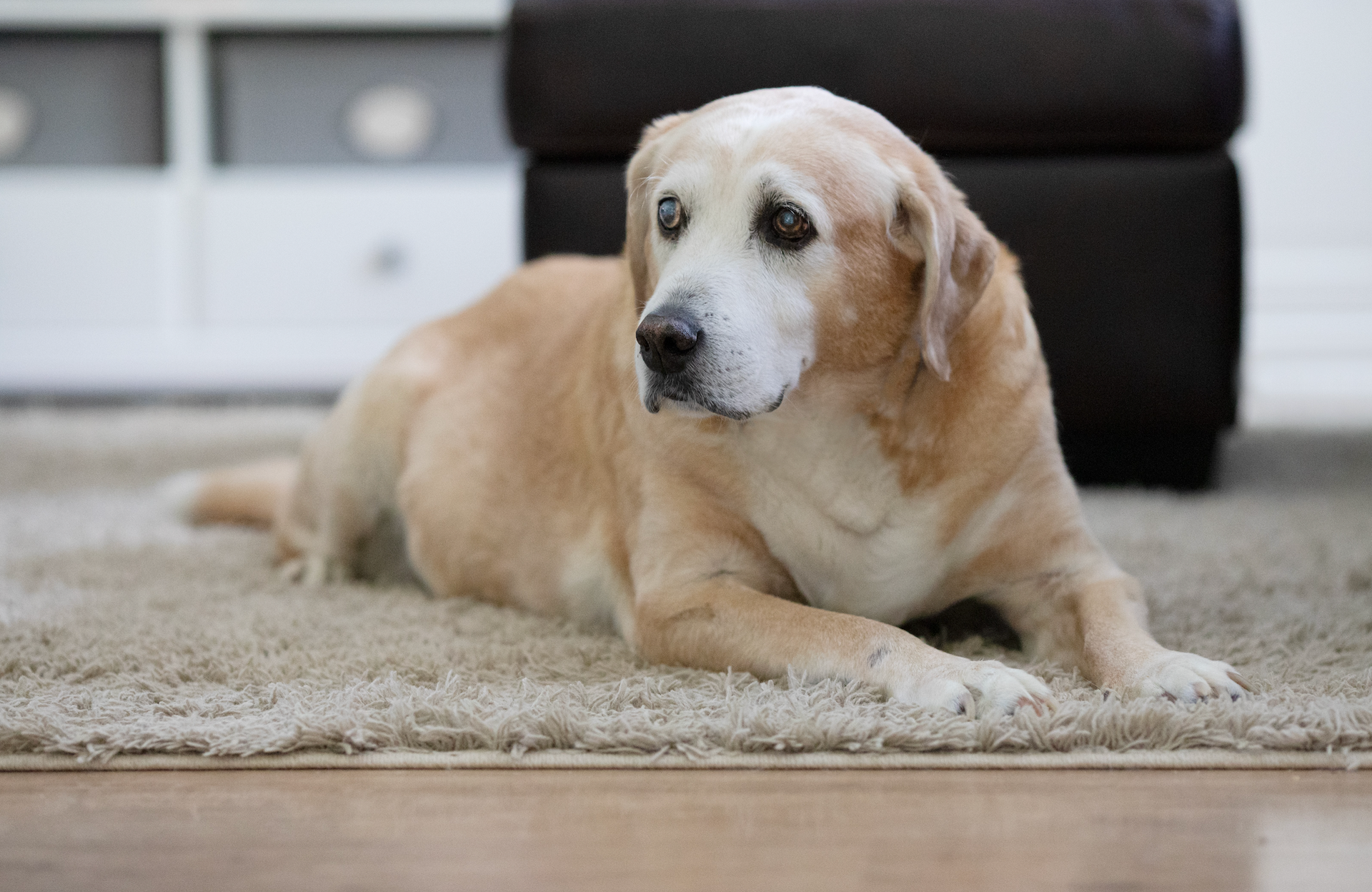How to Care for a Senior Dog: 10 Pro Tips
February 13, 2023

While dogs are typically healthy throughout their lives, there are certain things you can do to help keep them that way. By keeping an eye on your senior dog's health, you can help them live a long and happy life.
Here's 10 habits to incorporate into your senior dog’s care:
1) Track Weight Changes
It is important for you to keep track of your dog's body weight and make sure that the food intake is appropriate. If you notice a change in their weight, consult with your vet immediately. An overweight dog will have many health problems, including possible heart disease and diabetes, whereas an underweight dog may also suffer from high blood pressure and arthritis.
If your dog is overweight, try reducing their food intake. If they are underweight, try increasing their food intake accordingly until they reach a healthy weight range for their breed. Every dog is different so their needs may need to be adjusted with the assistance of a veterinarian.
2) Monitor Food and Water Intake
As your dog ages, they may start to lose interest in food. This is a normal part of aging and doesn’t necessarily mean there is something wrong with them. However, if you notice that your senior dog has fully lost interest in their food or is only eating a small amount, then it is important to talk to your vet as this could be a sign of an underlying health condition.
Senior dogs tend to have smaller appetites because their bodies don’t need as much energy as before. As well as this, their metabolism has slowed down so they don’t burn calories as quickly as they did when they were younger. This means that the amount of food they should be eating will also decrease.
3) Watch for Signs of Pain
Dogs can be masters at hiding pain, so it can be difficult to know if your senior dog is hurting. If you suspect that your dog is experiencing pain, it's important to have her evaluated by a veterinarian as soon as possible.
If your senior dog is experiencing pain, there are several ways that you can tell:
- She may limp or favor one leg over another.
- She might stop eating or drinking and lose weight.
- She may sleep more frequently than usual or have trouble sleeping through the night (or both).
- She may not like being touched at all or only on certain parts of her body.
-
She might cry out when she moves or jump up from sitting or lying down quickly.
4) Keep Up With Annual Appointments
Once your dog is past the age of seven, it’s time to start thinking about their annual checkups. The older they get, the more likely they are to have health issues, so your vet is going to want to know what’s going on and if there are any signs that you should be concerned about.
Even if everything looks good at the vet visit, there may still be a few things you can do at home for your senior dog that will help keep them feeling good! You can give them some extra love and attention (which is always appreciated), as well as make sure they're getting enough exercise—and maybe even earn some treats along the way!
5) Provide Some Exercise
It's important to keep your senior dog physically active. Exercise can help prevent obesity, osteoarthritis and other joint problems, as well as mental decline. You should make sure they're getting a good amount of exercise every day. At least 30 minutes or more is recommended.
Exercise with your dog will also be fun for you both, which can help alleviate the stress and anxiety that comes with caring for an aging pet. Plus, it gives them the opportunity to play with you more than usual! If you want to take things up a notch, try agility training. It'll give both of you an opportunity to bond while keeping your pooch from getting bored at home alone all day (and vice versa).
Plus, there are plenty of specific courses designed just for seniors available through various organizations around the country—you could even host one yourself!
6) Limit Exposure to Extreme Temperatures
Extreme temperatures can be dangerous for any dog, but it’s absolutely critical for seniors as they are even more sensitive to change than younger pups. Dogs can tolerate lower temperatures better than higher temperatures. For example, if it is about 70 degrees Fahrenheit outside, that's fine and healthy for your dog (but maybe not so much for you!). But if it gets up around 100 degrees outside, that's not good!
To avoid overheating and other problems during summer months:
-
Keep an eye on your pet while he or she plays outside. If you see him panting heavily or lying down to rest, take him inside immediately! Even just five minutes in the heat can cause serious damage to his health in the long term.
-
If it is too hot outside for you as well as your pet—and this goes for both humans and animals alike—then stay indoors until cooler weather arrives again!
7) Feed a Species-Appropriate Diet
If you want to keep your dog healthy in his golden years, don't feed him the same thing as a cat. Dogs are carnivores; cats are obligate carnivores. Your pet should be eating meat, not grains. And spoiler alert- kibble is mostly carbohydrates. Considering the switch to raw or homemade feeding is an option to reduce health complications.
Too much protein can cause kidney problems and bone loss for older dogs (and younger ones), so make sure that his food is formulated for his size, age, and health. If he's at risk for kidney disease, talk with your vet about reducing the amount of protein in his diet or finding a dog food formulated specifically for that purpose.
8) Use Beneficial Probiotics for Senior Dogs
As dogs age, they're more likely to suffer from chronic health problems such as arthritis and cancer. These conditions can result in digestive issues like diarrhea, constipation or bloating, which can lead to serious health problems.
For example, if your senior dog has chronic diarrhea that lasts longer than two weeks and results in a loss of appetite or dehydration, he may have colitis caused by bacterial infection from an imbalance in the gut bacteria population. This condition can be treated with antibiotics but also responds well to probiotic supplementation.
Probiotics, like those found in Daily Dog, are the good bacteria that live in your dog's digestive tract and help keep it healthy. As dogs get older, their immune systems often become less effective at fighting off harmful bacteria that can cause illness. Probiotic supplements may help restore balance to your dog's gut and boost his immunity.
9) Provide Mental Stimulation
Mental stimulation is important for all dogs, but especially for senior dogs. If your pet is like most older dogs, he has a lot of pent-up energy and boredom can cause him to get into trouble. This can lead to destructive behaviors such as chewing furniture or digging holes in the yard.
Games and puzzles are great ways to keep your dog's mind active and prevent cognitive dysfunction. You can try using toys that encourage your dog to search for food or treats by hiding them around the house or yard (but not too far away). For example, you can hide kibble in a Kong toy—the rubber toy fills with food after it's been chewed on and pushed around by your pup's gums (and it also cleans his teeth!).
To find new ideas for games to play with your dog: check out online forums where people share their own ideas; watch videos of other people playing with their pets; look through books on how to teach tricks; take classes at local pet stores or community centers!
10) Don’t Forget the Cuddles
If you’re having a bad day, your dog is the perfect companion. Your dog can help you feel better when you are down and they will greet you with joy and excitement when you come home.
If there is anything to take away from this article it would be that dogs are good listeners so let them know what is going on in your life by talking to them!
Keep Your Senior Happy and Healthy
We hope that these senior dog care tips help you to keep your pooch healthy and happy! It’s important to remember that every dog is different, so don’t be afraid to experiment with different methods. It may take some time before you find the right combination for your senior pet, but in the end it will be worth it because they will enjoy their golden years comfortably.
Read More:
Stress is the #1 Threat to Your Dog’s Gut Health
Is Your Dog in Pain? 14 Signs to Look Out For

